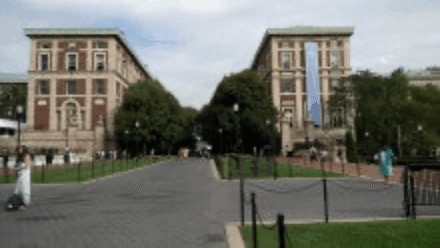
Orientation & Fall 2016 Schedule
Good evening, my name is hiro. Finally, Orientation and Fall 2016 term has started!
こんにちは、hiroです。
ついにオリエンテーションそして初学期が始まりました~!
(なぜ公共政策か?の過去記事)
1. Orientation 〜多様性、GW、立地条件というSIPAの特徴〜
ここで始めてブログを読む方へのおさらいです。
私の在籍しているプログラムはSIPA(国際公共政策大学院)のMPA(行政学修士)。
2年のプログラムです。
MPAは公共分野のリーダーを志す人を育成するプログラムですが、学生は政府関係者だけではありません。
民間企業、国際機関(国連など)、NPO、職務経験のない学生など様々です。
To those who read my blog for the 1st time;
I'm a MPA (Master of Public Administration) student at Columbia University's SIPA (School of International and Public Affairs), which is 2-year master degree program.
MPA is a program for fostering those who will plan to play a role as a leader in public sectors, but students are not limited to public officers.
There are various backgrounds, such as private companies, International Institution such as UN, Non-Government Organization, students just graduated from college and so on.
SIPAの特徴は大きく分けて3つあると思います。
In brief, there are major 3 characteristics of SIPA.
①多様性
400人を超え、60%以上の留学生率、世界の70近くの国から集まる学生。
自分にとっては、まさに初体験の世界です。
それだけに、無数の価値観や世界観、職務経験、体験談に触れて学ぶことができる。
これはかけがえのない機会だと思います。
<1. Diversity>
More than four hundred students from about seventy countries are here, about sixty percent of them are from foreign countries.
So everything is totally new to me, my first experience.
Therefore, we can learn from other people's values, way of looking at the world, job experiences, personal ones, which is sooo invaluable an opportunity.
②独学よりもグループワーク重視
SIPAは卒論がないかわりに、キャップストーンというグループプロジェクトが必須になっています。
これは、クライアントから実際に依頼のあった政策課題に対し、学生がグループで分析し政策提言を行うというもの。
このことからも、独学よりもグループで議論し、解決策を導き出すことに重きを置いているのが分かります。
<2. Emphasis on group work rather than studying alone>
At SIPA, group project called "Capstone" is mandatory to all students, while there is no thesis requirement.
In Capstone, students will analyze the problems which particular clients requested and make some proposals as a group.
As you can see from that, SIPA definitely puts an emphasis on group discussion and coming up with solutions by groups rather than studying alone.
③立地条件
大学の勉強の内外で、ニューヨークという地を活用して知見を広めることができます。
特に卒業後就職を求めている方にとっては、この上ない立地条件でしょう。
<3. Location>
We can make the most of the place "New York" to broaden our mindsets inside and outside of our school life.
This is especially significant for those who seek job after graduation.
今週はオリエンテーションということもあってキャンパスに人が大勢いました。
しかし、初日に写真を撮り忘れたのでこれが水曜の写真・・・少し閑散としていますね。笑
There are a lot of people in campus cuz this is the Orientation Week.
However, I forgot to take a picture at the first day so this one is taken on today.

月曜、火曜はコースの説明を受けたり、ネットワーキングなどをしました。
サマースクールの時よりもさらに、みんなしゃべるのが早い!!!
内容を理解するので精一杯で、自分がしゃべるまでにタイムラグが発生してしまいます。。
On Monday and Tuesday, there are a lot of lectures about curriculum, school life and other things, and also we had an social networking event.
Most of the students speek sooo fast, much faster than I experienced in Summer school!
I had difficulty in responding immediately after someone said cuz it took a few seconds for me to understand what they said.
そして、履修登録をしました。
4コマ取る予定なのですが、最初の学期は必修科目でほとんど埋まることになりそうです。
And today we did registration!
I plan to take 4 courses this semester, most of them are Core courses.
大きなバックパックなどももらい、いよいよ学業の準備が整ってきました!
With a big backpack given at orientation, I am gradually going to fall studies!

2. Class Schedule (Fall 2016)
初学期の今のスケジュールはこんな感じ。
My weekday schedule in this 1st semester is as follows:
Mon
9:00-10:50 Quantitative Analysis (Lecture)
11:00-12:30 Microeconomics (Lecture)
Tue
11:00-12:30 Accounting (Lecture)
14:10-16:00 Quantitative Analysis (Recitation)
18:10-20:00 Politics of Policymaking (Lecture)
Wed
11:00-12:30 Microeconomics (Lecture)
Thu
9:00-10:50 Politics of Policymaking (Discussion)
11:00-12:30 Accounting (Lecture)
Fri
9:15-10:45 Microeconomics (Recitation)
11:00-12:50 Accounting (Recitation)
※Lectureというのは先生の講義、Recitation又はDiscussionというのはTAによる復習やディスカッションです。
今学期は必修を取るので精一杯なので、ベースになる科目ばかりで固めています。
日本の大学と違うのは、とにかく宿題が多い!
1週間で100~200頁の課題を課してくるクラスもあり、ざっと読むだけでもかなり時間がかかります。
そして、ディスカッションに備えて考えを整理しておく必要があります。
In this semester, I cannot other classes than core, so these are basics which will provide me with knoledge and framework for future semester.
What is the most different from Japanese universities is.... the amount of reading assignment!!
Some classes impose me on 100 to 200 pages of reading assignment, so it takes a lot of hours to just skim.
Moreover, we need to prepare for discussion, coming up with our own opinions toward the content.
それぞれの科目でどんなことを学んでいるかは、今後触れていきたいと思います^^
I'll refer to the contents of each class in detail in later posts.
この記事が参加している募集
この記事が気に入ったらサポートをしてみませんか?
